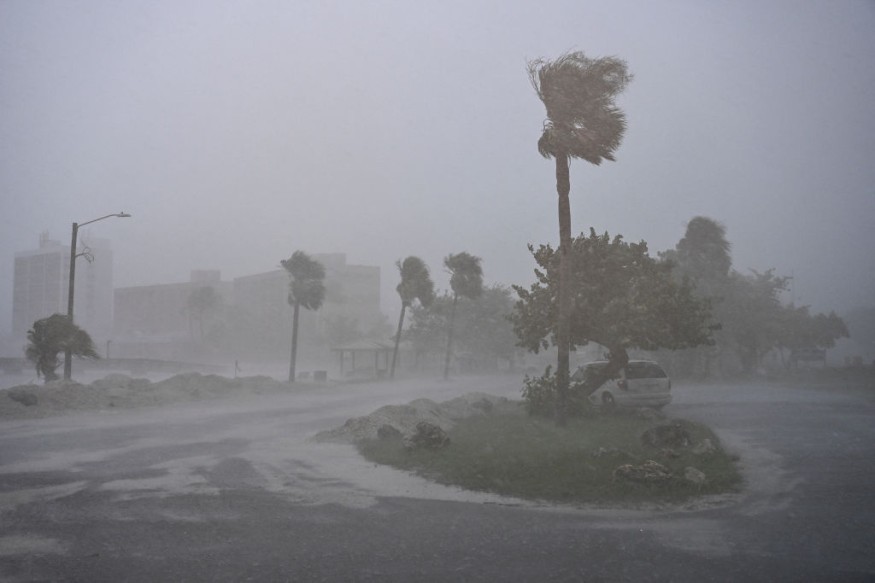
Before Hurricane Milton hit Florida, the National Hurricane Center accurately predicted its path, landing just 12 miles from its eventual landfall. This level of precision illustrates significant improvements in hurricane forecasting, a vital tool for public safety during storm events.
However, despite these advancements, meteorologists are now facing unprecedented skepticism and hostility, particularly on social media, as conspiracy theories about weather manipulation gain traction.
Meteorologists Face Backlash Despite Accurate Hurricane Predictions
Meteorologist John Morales, with NBC 6 South Florida, highlighted the accuracy of forecasts during recent storms, stating, "The predictions proved to be remarkably precise, and it's hard to find anyone who was taken aback by where these storms made landfall or their strength."
The National Weather Service issued timely warnings for Hurricane Helene, forecasting "record flooding" for North Carolina, about 400 miles from the coast. The accurate forecasts were crucial in preparing communities for the severe impacts of these storms, according to NBC News.
Meteorologists have reported a surge in unfounded allegations suggesting they are manipulating hurricane paths. Matthew Cappucci, a meteorologist with MyRadar Weather and The Washington Post, noted, "Over the last two months, there has been a significant increase in conspiracy theories, particularly on social media."
These theories have resulted in personal attacks and threats directed at weather professionals. Some individuals even believe that meteorologists possess the capability to redirect hurricanes toward certain states.
Bradley Panovich, a leading meteorologist at WCNC in Charlotte, North Carolina, noted that communications with the public have become more personal and hostile. He expressed concern that the negativity surrounding their work diverts time and resources away from critical weather forecasting efforts.
"It's also diverting time and resources from the critical task of predicting weather patterns," he stated.
The emotional toll of forecasting increasingly destructive hurricanes adds to the challenges faced by meteorologists. Kim Klockow McClain, a senior social scientist with the National Weather Service, compared the experience of losing lives during a weather disaster to a physician losing a patient during surgery.
"Experts believe they have the ability to protect everyone. They view it as a personal affront," she said.
Despite the skepticism faced, hurricane forecasts have improved remarkably over the last 50 years. Shel Winkley, a meteorologist with the nonprofit organization Climate Central, attributed this progress to advances in computing and a better understanding of storm dynamics.
Winkley said, "Our cones have become narrower," indicating increased confidence in predicting hurricane trajectories.
Meteorologists Combat Conspiracy Theories
The National Hurricane Center has consistently released data showing a decrease in track errors since the 1970s. While a storm forecast 36 hours in advance used to be inaccurate by about 230 miles, that error is now around 57 miles.
Cappucci referred to the prediction of Hurricane Milton as "almost prescient," highlighting the National Hurricane Center's success in forecasting. Unfortunately, the devastation from recent hurricanes like Helene and Milton has led to a spike in conspiracy theories on social media, further complicating the lives of meteorologists.
Many have reported receiving hate comments and even death threats from individuals who believe forecasters are disseminating false information or colluding with the government.
Katie Nickolaou, a meteorologist at WLNS news in Lansing, MI, has experienced this backlash firsthand. After posting videos aimed at debunking conspiracy theories, she received threatening comments, and she responded to them, stating, "Murdering meteorologists won't stop hurricanes. I can't believe I just had to type that."
On Oct. 8, Chris Justus, the lead meteorologist at WYFF News, also addressed inquiries regarding the alleged influence of humans on weather events.
Justus stressed that while scientific reasoning underpins his role as a meteorologist, his faith compels him to recognize a higher influence over natural events, USA Today reported.
© 2025 NatureWorldNews.com All rights reserved. Do not reproduce without permission.





